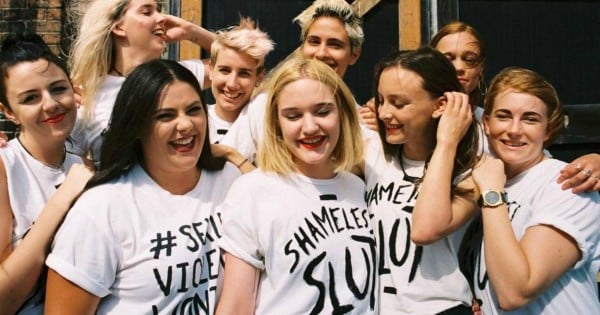
By Erin Stewart.
Late last year, two young women went to their local police station in Sydney after they were threatened with rape. The police didn’t know what to do.
“We’re not sure we know how to prosecute this,” officers reportedly told them. “These cases are hard.”
It was “hard” because the abuse perpetrated against these women had happened online. A 25-year-old man, Zane Alchin, is accused of posting a screenshot of a woman’s Tinder account alongside a derogatory caption.
When other, female users called him out on his cruelty, he allegedly responded with explicit and violent remarks, allegedly calling them “sluts” and referring to “the best thing about raping feminists”.
But this event is not an isolated one.
According to a report by the UN Broadband Commission for Digital Development Working Group on Broadband and Gender, 73 per cent of women globally have already experienced online violence.
Cases of perpetrators facing the justice system, however, are rare. Only 5 per cent report harassment to the law enforcement system, and as internet culture writer Amanda Hess has noted, cases of online harassment against women are rarely pursued further.
Women are not taken seriously, abuse online is not seen as “real”, and the path to justice is muddy within existing legislative frameworks.
‘Sexual Violence Won’t Be Silenced’.
One of the women who went to police, along with others, have formed advocacy group Sexual Violence Won’t Be Silenced (SVWBS), started a petition against harmful comments allegedly made by Alchin and the reams of similar cyberhate.

Top Comments
Nothing will change until solid legislation is put in place to convict these trolls. Unfortunately, the internet is full of faceless cowards who know they are untouchable...
The people who do this sort of thing make me absolutely furious. What kind of sick, pathetic little life must you lead to post child pornography on sites that pay tribute to deceased children? And what kind of revolting little man threatens rape over the internet? Not the kind of guy who would actually be able to go out and do something that violent, I imagine, they're the kind of people who spend their entire lives on their computers (probably in their mother's basements), unable to live any kind of life in the outside world. They've probably been snubbed by women in real life who have correctly identified them as pathetic douchebags, but instead of turning themselves into functional people who women would want in their lives, they externalise their anger and direct it at women who they can terrorise with threats in order to feel a sense of control over the actions of women who wouldn't give them the time of day.
We need laws to pass so that anyone, man or woman, who threatens another person online can face consequences. If nothing else, exposing the behaviour to the wider community will probably force the person to go into some sort of counselling so that they can lead a fulfilling life, rather than a pathetic one.